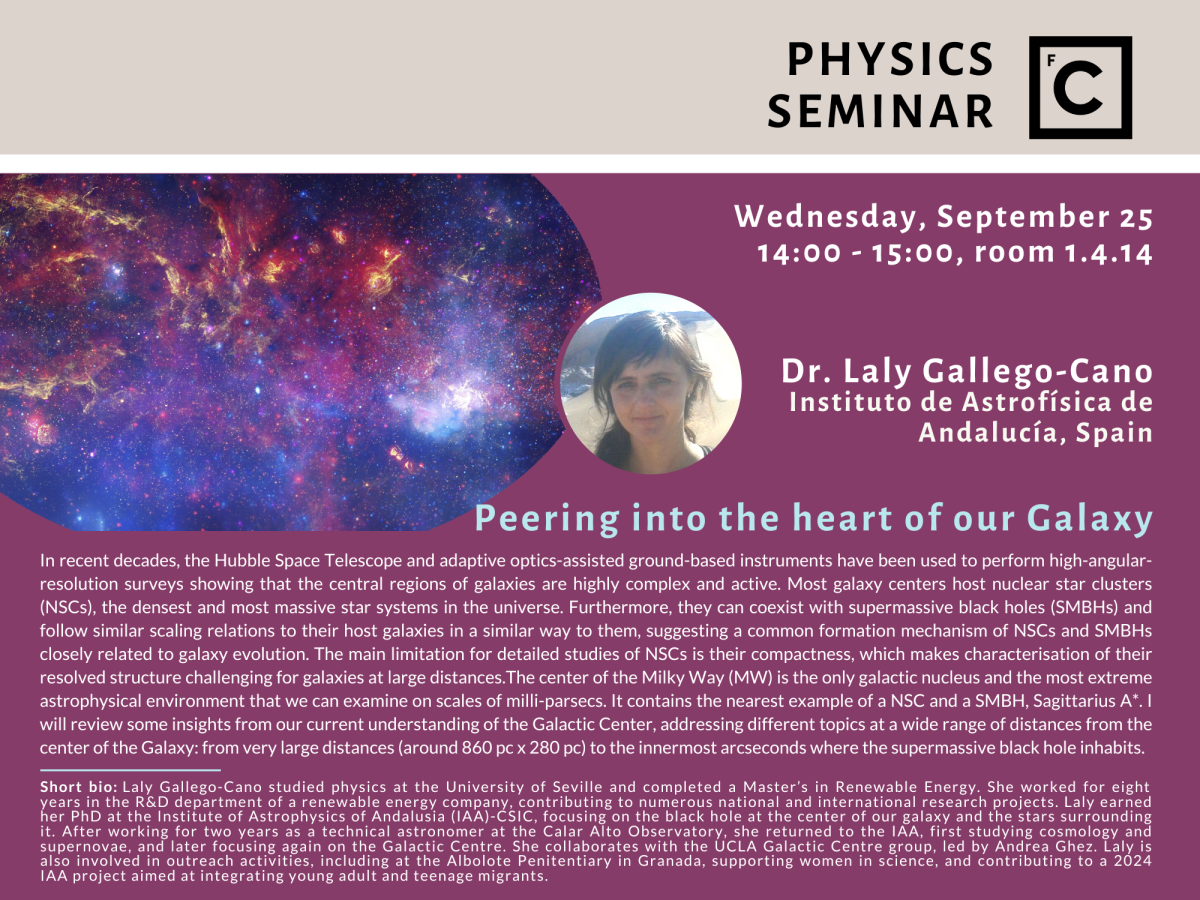Por Laly Gallego-Cano (Instituto de Astrofísica de Andalucía, Spain).
In recent decades, the Hubble Space Telescope and adaptive optics-assisted ground-based instruments have been used to perform high-angular-resolution surveys showing that the central regions of galaxies are highly complex and active. Most galaxy centers host nuclear star clusters (NSCs), the densest and most massive star systems in the universe. Furthermore, they can coexist with supermassive black holes (SMBHs) and follow similar scaling relations to their host galaxies in a similar way to them, suggesting a common formation mechanism of NSCs and SMBHs closely related to galaxy evolution. The main limitation for detailed studies of NSCs is their compactness, which makes characterisation of their resolved structure challenging for galaxies at large distances. The center of the Milky Way (MW) is the only galactic nucleus and the most extreme astrophysical environment that we can examine on scales of milli-parsecs. It contains the nearest example of a NSC and a SMBH, Sagittarius A*. I will review some insights from our current understanding of the Galactic Center, addressing different topics at a wide range of distances from the center of the Galaxy: from very large distances (around 860 pc x 280 pc) to the innermost arcseconds where the supermassive black hole inhabits.
Short bio: Laly Gallego-Cano studied physics at the University of Seville and completed a Master’s in Renewable Energy. She worked for eight years in the R&D department of a renewable energy company, contributing to numerous national and international research projects. Laly earned her PhD at the Institute of Astrophysics of Andalusia (IAA)-CSIC, focusing on the black hole at the center of our galaxy and the stars surrounding it. After working for two years as a technical astronomer at the Calar Alto Observatory, she returned to the IAA, first studying cosmology and supernovae, and later focusing again on the Galactic Centre. She collaborates with the UCLA Galactic Centre group, led by Andrea Ghez. Laly is also involved in outreach activities, including at the Albolote Penitentiary in Granada, supporting women in science, and contributing to a 2024 IAA project aimed at integrating young adult and teenage migrants.


